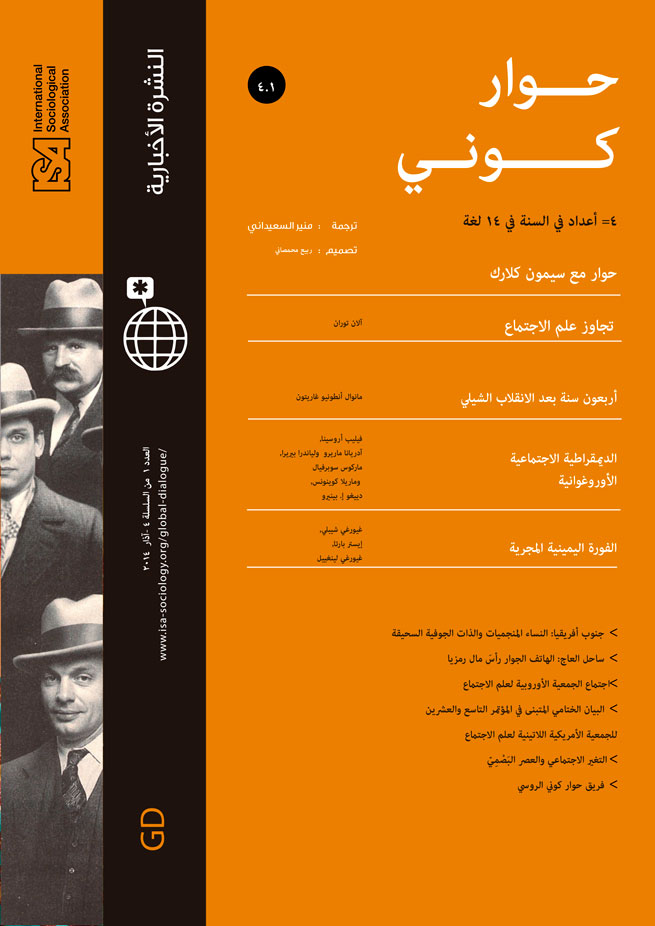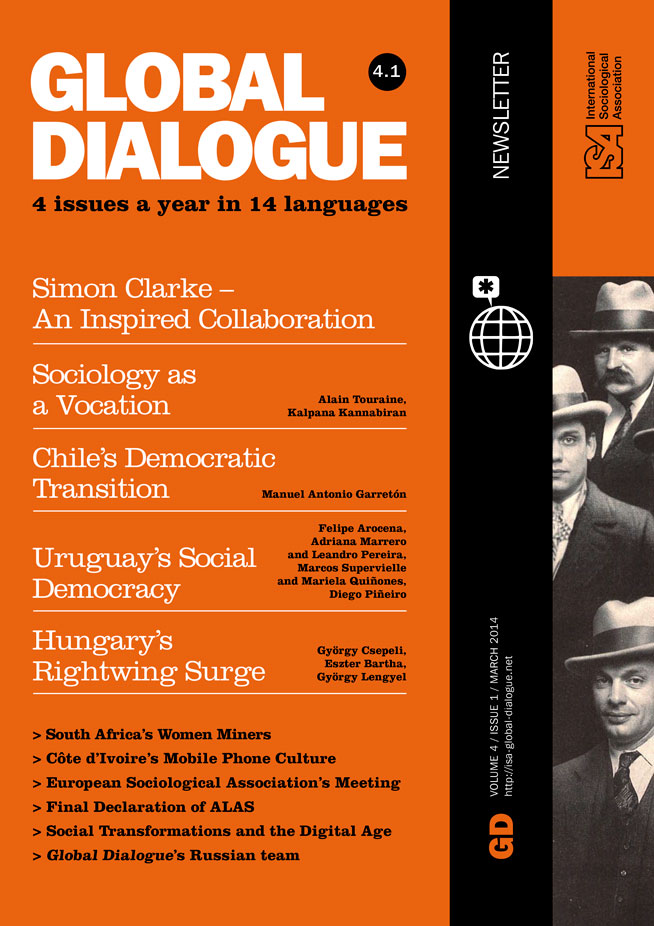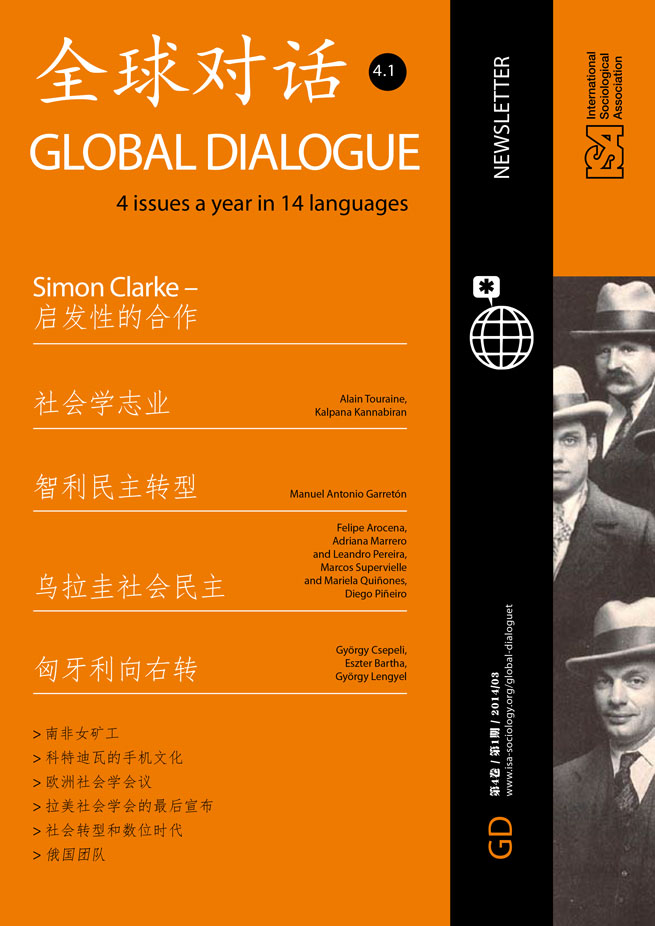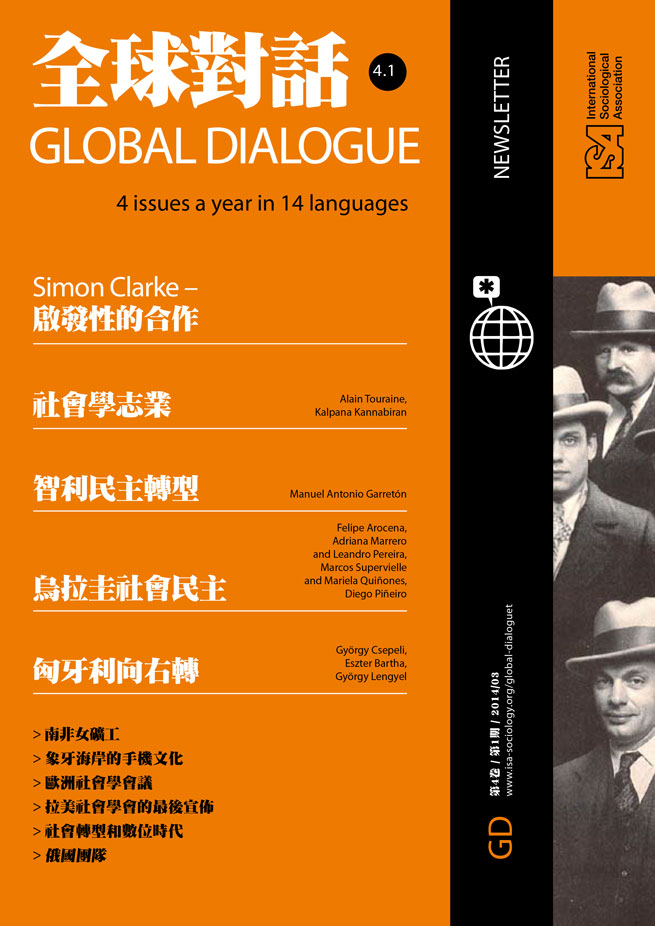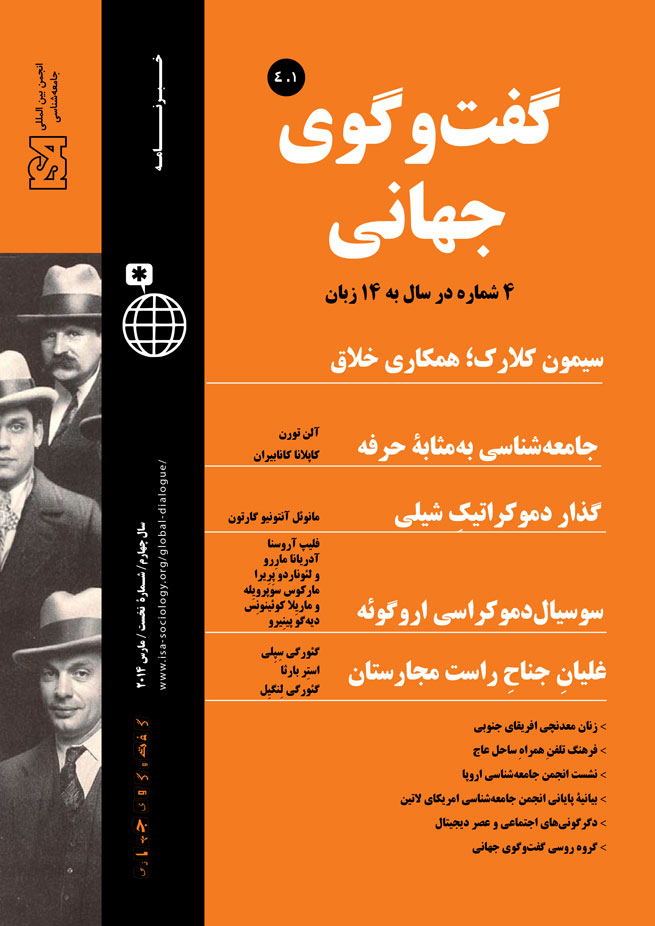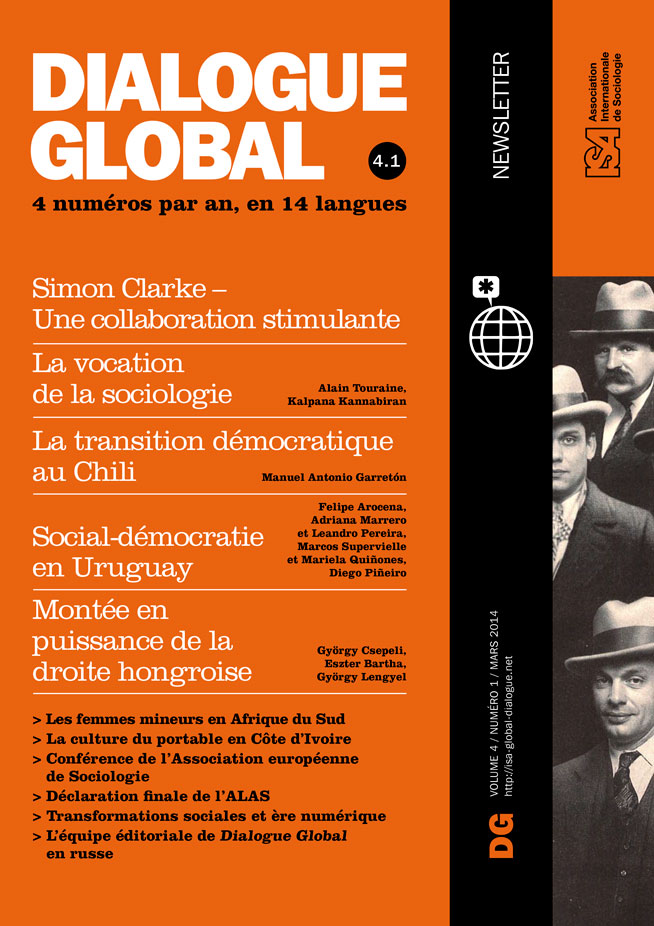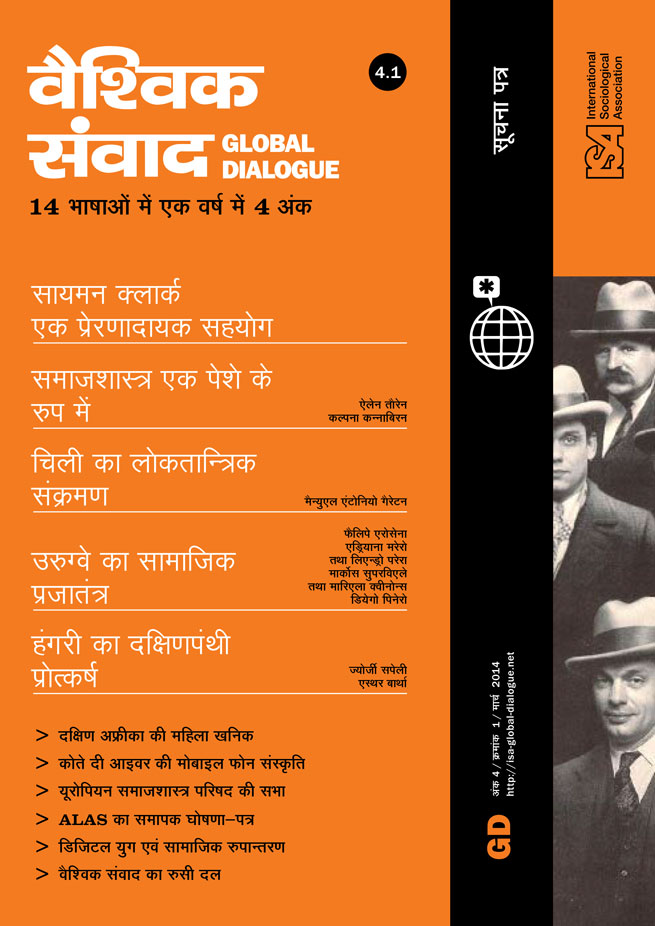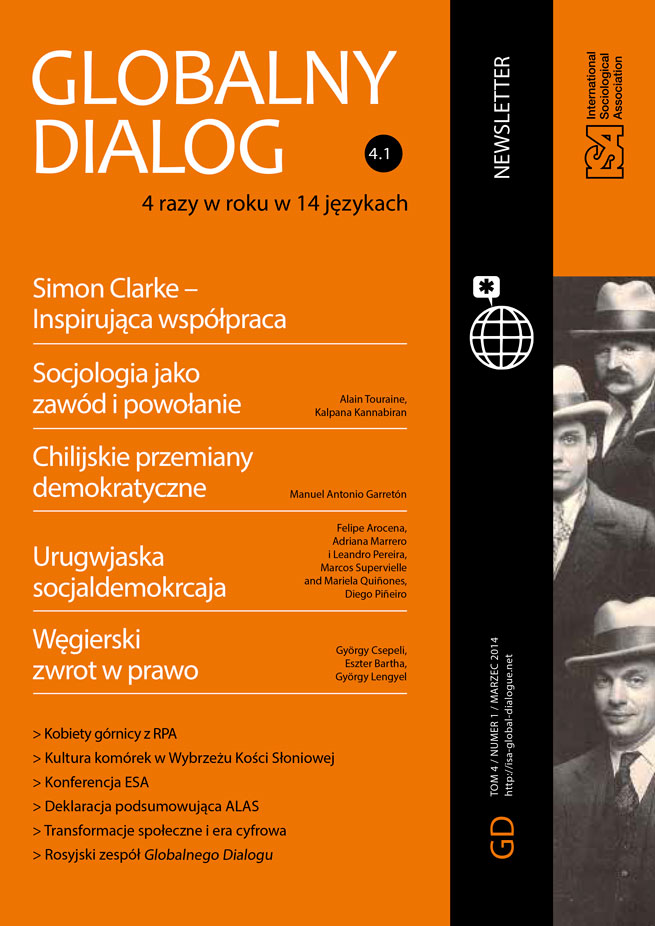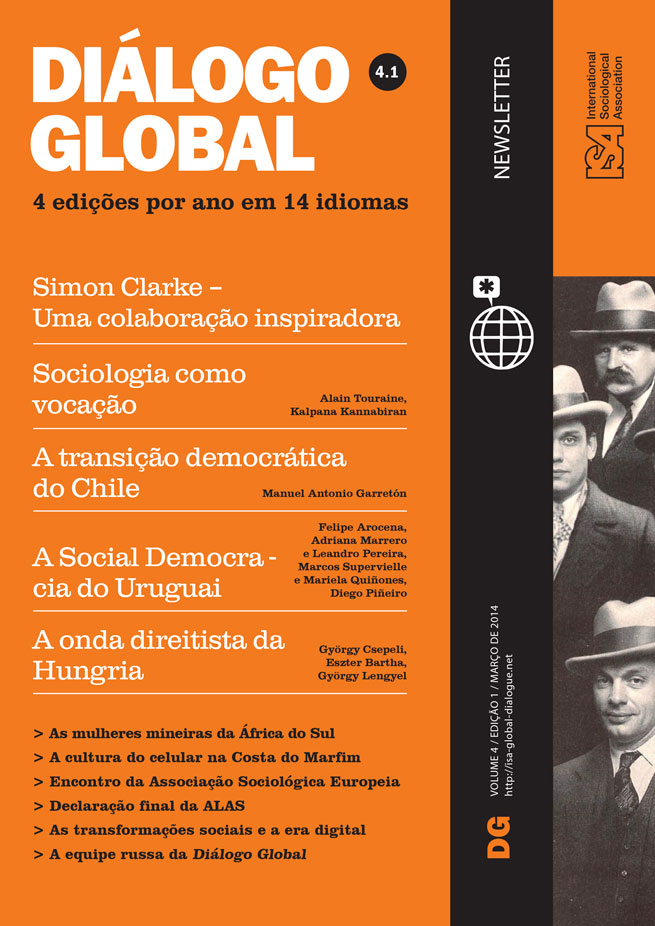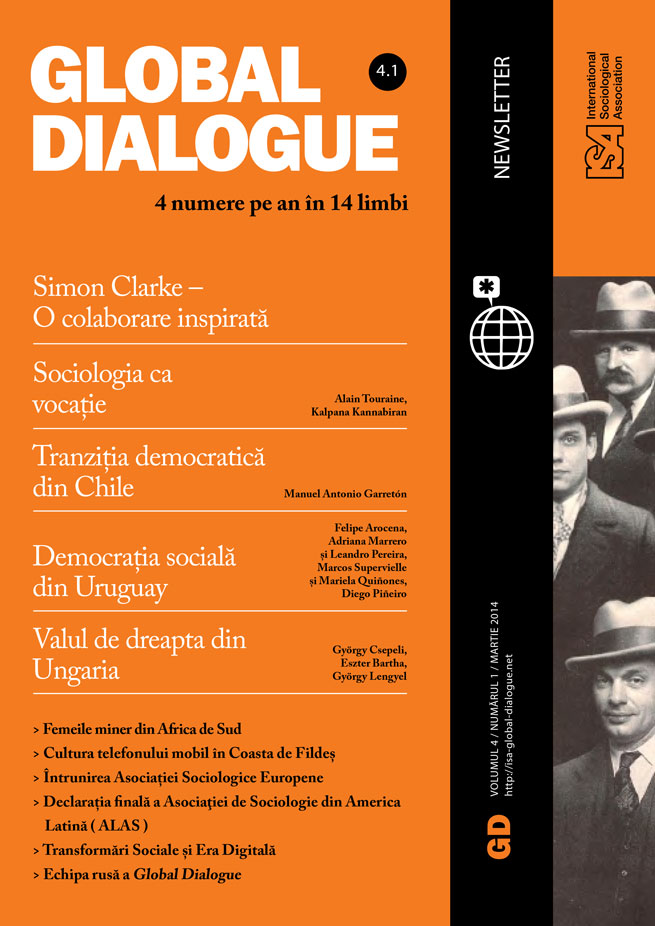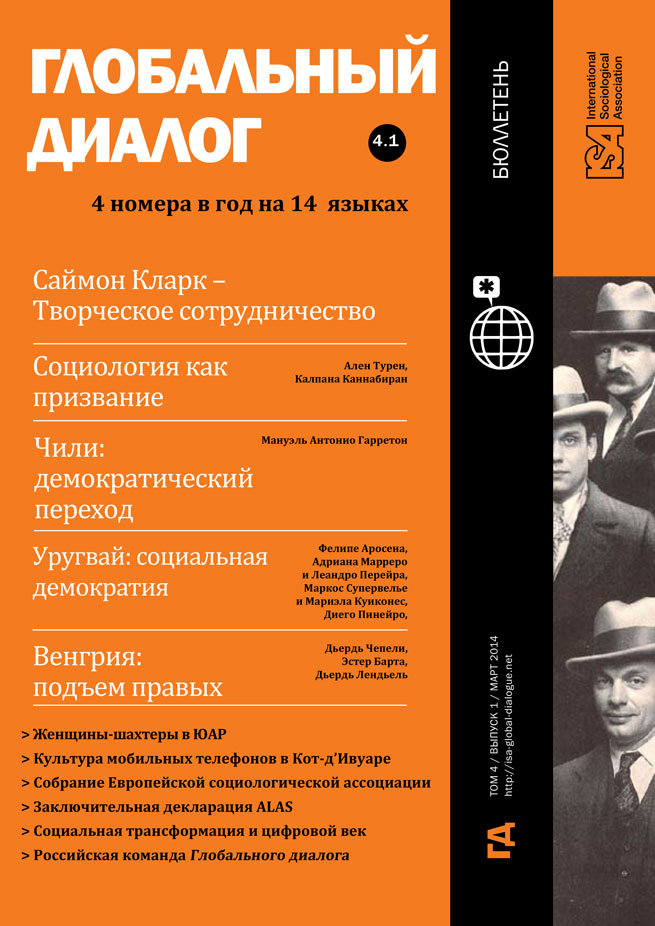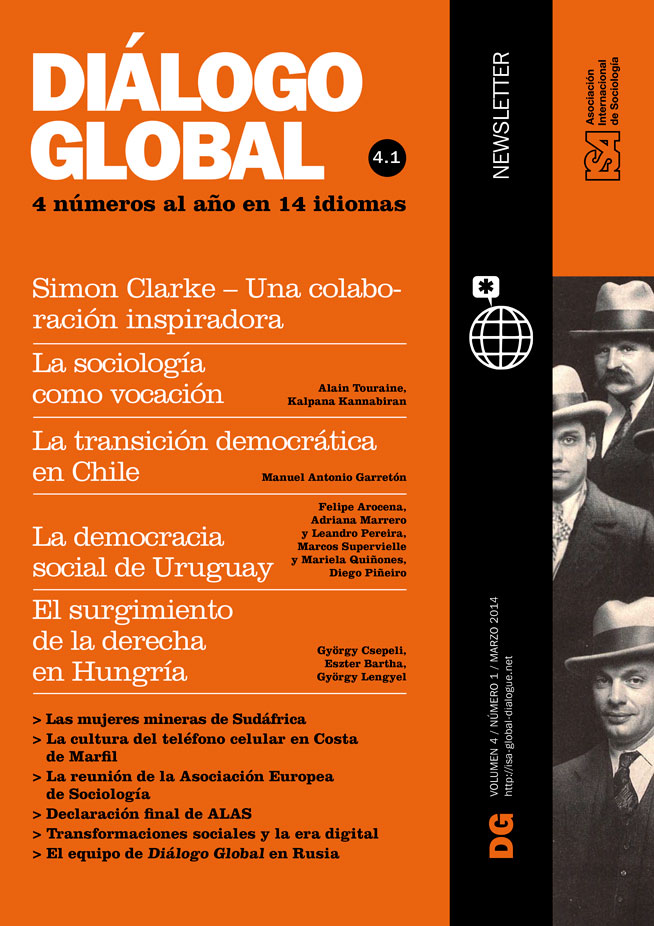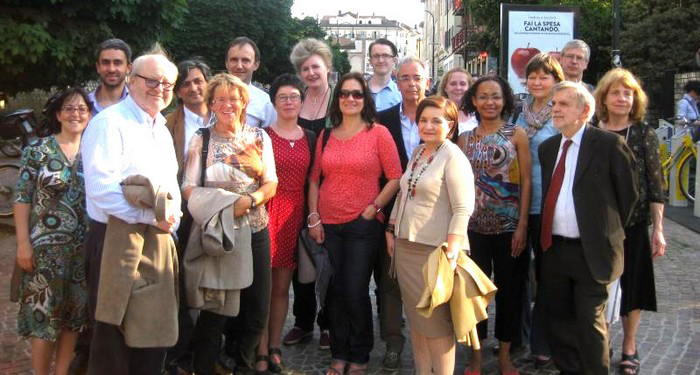Read more about Conference Reports
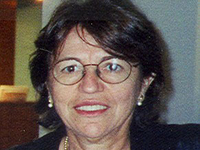
Social Transformations and the Digital Age
by Elisa P. Reis
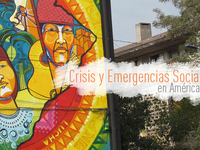
29th ALAS Congress: Final Declaration
by ALAS
February 10, 2014
The ISA’s Publications Committee has a policy of sending members to key conferences to report back on what is going on to inform our editors; this is one of those reports. But how to report on a whole meeting? There were said to be at least 2,600 people attending; 4,000 abstracts had been submitted, of which 3,200 were accepted. It is clearly impossible for any one person to attend everything when there are many simultaneous activities. My strategy was to go to as many different things as possible, on diverse topics, without regard to my personal interests, or with regard to them but looking for novel or alien approaches. I am not sure whether this strategy was the reason why there seemed to be more people than I was accustomed to meeting at conferences who worked in policy rather than academic settings. Whatever the reason, I thought this gave an interesting perspective on some issues, as well as access to data not open to every researcher. It also meant that academic sociologists were getting more opportunities than usual to pass on their research to the policy world.
Timetable slots were an hour and a half, and the non-plenary ones normally had three or four papers, which meant that each had to be very briefly presented; the effect being to encourage data without theory or theory without data. The maximum number of participants had the opportunity to give a paper, but that was not an unequivocal advantage for the listener! It was hard to judge what more extended versions of the papers, suitable for publication, would be like. However, the skeletal structure did make it very clear what were some of the key points. Here is a sample[1]:
• Secularism does not have to be regarded as a foundational part of modernity.
• The former communist countries can usefully be categorized as post-colonial.
• Cultural stratification might be more fully understood if business entertainment practices were studied.
• Crisis may lead to new creative opportunities, giving more visibility to young people’s subjective choices.
• Government reactions to financial crisis have implications for professionals in the health care system which need to be taken into account in the sociology of professions.
• Performative and arts-based biographical methods, excellent of their kind, may not be accessible to the general public. A grounded-theory approach in a large study of European identities led to the discovery of eight different types of felt European identity.
• Elderly people found weak ties, with others on the periphery of their social circles, important for support because they involved lesser obligations than ties with those closer, such as relatives.
• A lot of people [especially in Germany and Switzerland] are now working on aspects of fashion.
• Family sociology has neglected people living in single-person households.
• The level of success of radical right parties depends on such factors as voting systems [compulsory voting, and broadcasting opportunities, bring in people hostile to politics], and whether there is a moderate right party available as an alternative.
• Contemporary right parties have shifted their attention to ethnoculture rather than “race;” there are different scapegoats or objects of negative identification in different parts of Europe – Islam in the West, the communist past for the East.
• A number of presentations which relied on secondary survey data, offering description without explanation, suggested that it would be useful to have some deliberate methodological comparisons with “qualitative” approaches using smaller and less formally representative samples.
ESA is just starting a new journal; they already have European Societies, and both journals will be electronically free to members. The new one is the European Journal of Cultural and Political Sociology, also to be published by Routledge; the first issue is planned for March 2014. The editors are Paul du Gay, Ricca Edmondson, Eeva Luhtakallio, and Charles Turner. An editorial board of nineteen includes seven members based outside Europe and so far, surprisingly, none from Eastern Europe.
[1] Much programme information on the conference is still available at the ESA website, http://www.europeansociology.org/conferences/11thesa-conference.html
Jennifer Platt, University of Sussex, UK and ISA Vice-President for Publications, 2010-2014
This issue is not available yet in this language.
Request to be notified when the issue is available in your language.
If you prefer, you can access previous issues available in your language:
